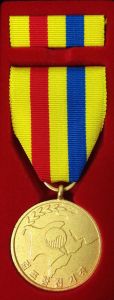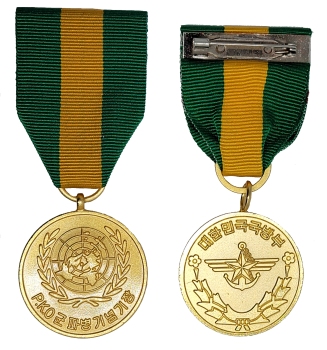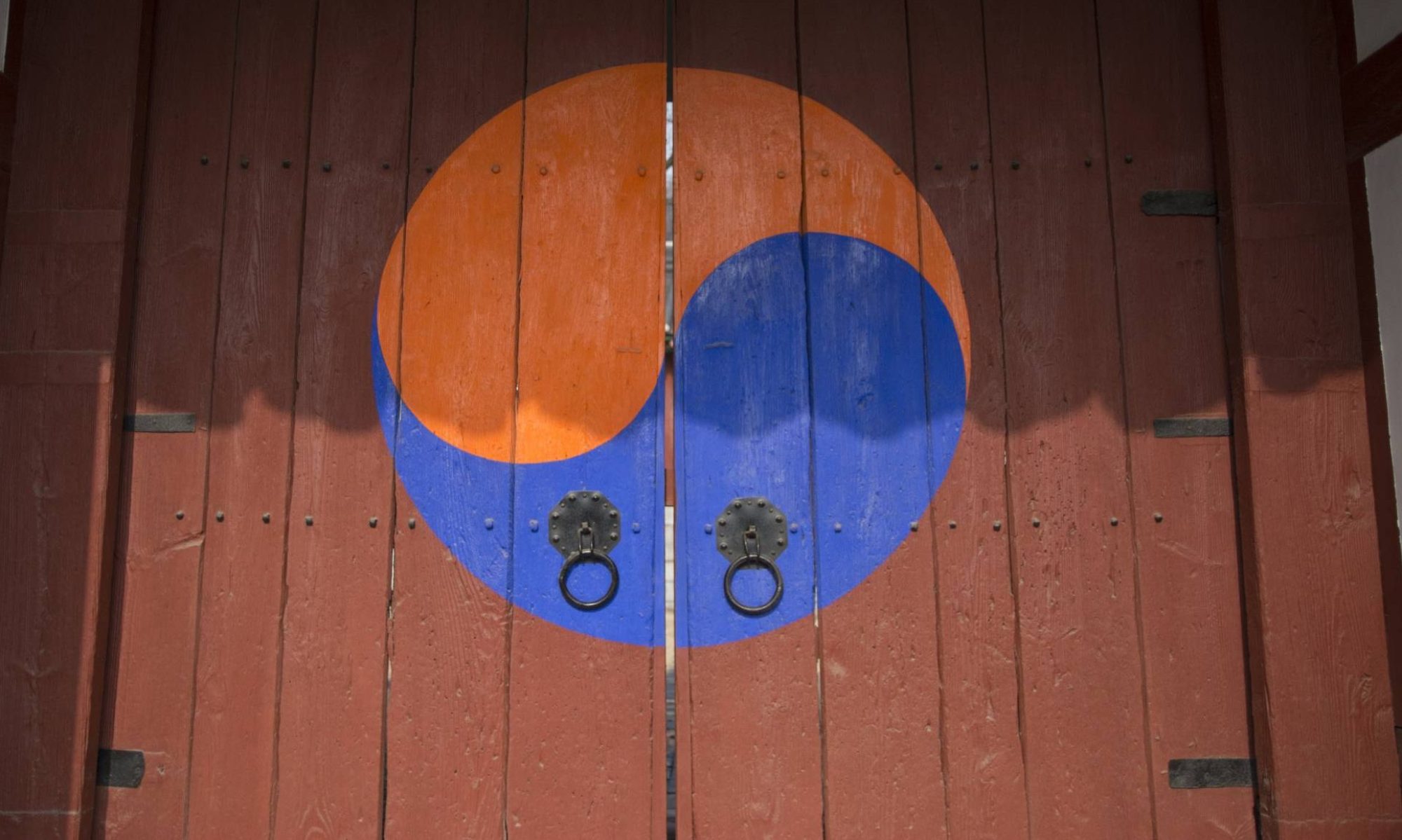Medal to Commemorate the Dispatch of Peacekeeping Activities (PKO) Forces. 평화유지활동(PKO)군 파병기념 기장.
The relationship between the Republic of Korea and the United Nations Security Council dates back to the beginning of the country in 1948. The United Nations Security Council (UNSC) and the United States jointly agreed in 1947 that the first presidential elections had been fair and that the outcome would be upheld. When North Korea attacked in June 1950 the Security Council was called upon again to decide on an appropriate response from both the United States and President Syngman Rhee. On June 27, 1950, the Council agreed that Kim Il Sung had unlawfully invaded the Republic of Korea. Sixteen foreign nations, including the United States, sent combat forces that would serve under the United Nations Command (UNC). Five additional nations sent noncombatant personal, such as hospital and ambulance units. At its peak, there were 932,964 troops serving under the UNC in Korea. The Korean Ministry of Patriots and Veterans Affairs believes that 1,957,733 foreigners came to Korea’s aid during the War. The highlight of the UN’s collective efforts was the September 15, 1950, amphibious landing at Inchon, which effectively turned the tide of the war towards the South and its allies. In 1953, the UN supervised the armistice agreement between North and South Korea. The United Nations Peace-keeping Operation plays an integral part in maintaining international peace and security and is continuously expanding in terms of its size and mandate. The government of the Republic of Korea is aware of the importance of PKO and is making efforts to strengthen its contribution to the international society by increasing its participation in various peace-keeping activities.

걸프전 참전 기장

Since the Korean War, the Republic of Korea has risen from one of the poorest countries in the world to the World’s 13th largest economy. Being mindful of its obligation to the United Nations, the Republic of Korea has acted accordingly.
The Korean Act #9939 “United Nations Peacekeeping Operations Participation Act” was enacted on Jan. 25, 2010 (effective 2010.4.26) in a bid to promote the Republic of Korea’s prompt participation in UN PKO. This law allows the ROK government and the UN to establish provisional agreements on matters related to the deployment of approximately 1,000 peace-keepers before the approval of the National Assembly. The Korean Government plans to continue its active participation in PKO missions and is making constant efforts to improve its contribution to the program.
Some of the PKO operations in which Korea has participated are:
- South Sudan (Hanbit Unit), South Sudan Mission Team (UNMISS)
- Afghanistan (Oshino Unit), Afghanistan Multinational Peacekeeping Forces
- Lebanon (Dongmyung Unit), Lebanon Peacekeeping Forces (UNIFIL)
- East Timor (Evergreen Troops), UNAMET, UNMISET
- Somalia (Cheonhae Unit)
- Haiti (Danbi Unit), Haiti Stabilization Mission Team (MINUSTAH)
- India-Pakistan Armistice Monitoring Group (UNMOGIP)
- Ivory Coast Mission (UNOCI)
- Cyprus (Cyprus) Peacekeepers
